It’s an exciting time to be in Thailand’s coffee scene. New coffee trends and new varieties of coffee are emerging and becoming new favorites for young customers. To young consumers, coffee is more than just a caffeinated beverage to get them through a day. Coffee is a bridge to friendship which created coffee communities we have today. However, coffee community extends the whole supply chain, and every step from growing to processing plays a part in aroma in your cup. Each step involves countless number of people, but the step that cannot be overlooked is coffee growing. Coffee has been grown for generations and farmers today are greying. The gap between 2 generations is expanding as young generation has two options: whether head to the city or continue their parents’ path. This edition of CTI explores the life of young coffee farmers and bring you their perspective and what it’s like to be a new generation of coffee farmer in Thailand.
Watcharaphong Krathomromprai
– Klohaki Coffee Estate –
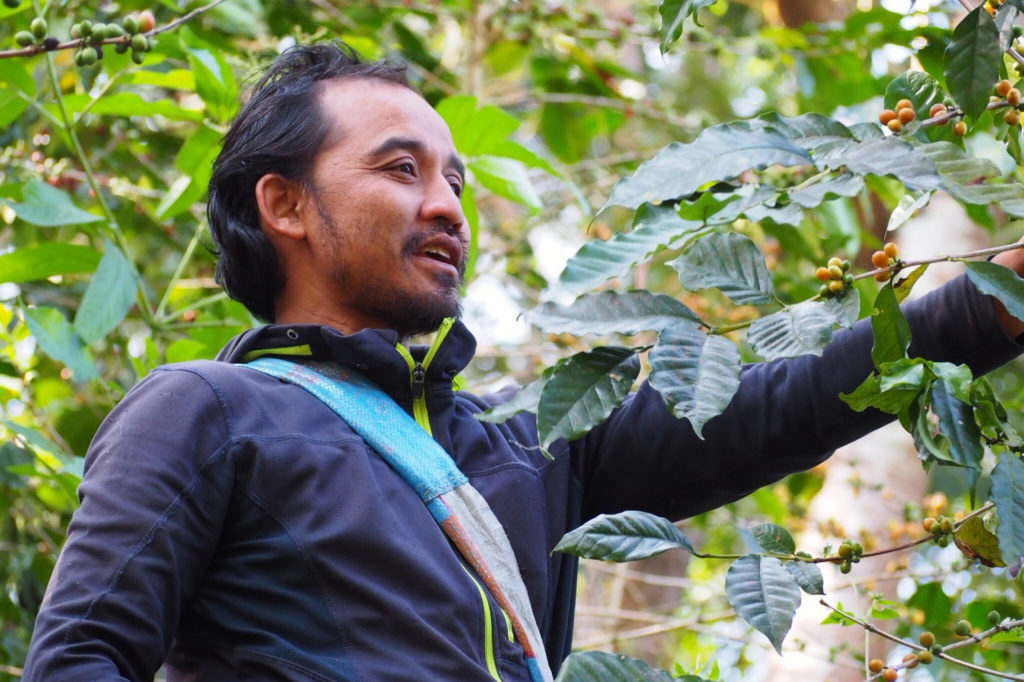
Watcharaphong Krathomromprai, aka Punpun, is a member of Paka-kyaw hill tribe and the founder of Klohaki Coffee Estate. His brand has already reached its second anniversary, but before he jumped into coffee industry, he has done various jobs in Bangkok in over than 20 years. During his time in the capital, he had a chance to drink the best coffee and talk with café owners and baristas, as well as occasionally discussed coffee export with foreign friends. When he travelled to Vietnam he also saw coffee shops on every corner of the city, and he always told his friends about having his own brand of coffee one day. Punpun soon grew tired of the capital and his childhood memories of his parents’ coffee farm began to drive him back home. Two years ago, he turned his back on Bangkok and devoted himself to coffee at the age of 38. Fortunately he had a friend who was interested in opening a roastery in Chiangmai and would buy green beans from him right away, and that’s when his real coffee journey began.
Making Differences
Punpun family farm previously used fully wash process for their beans, but he switched to honey and natural processes as soon as he stepped in. His family was seriously concerned at first because they worried that they wouldn’t be able to sell the beans as no one in the area had done this change before. However, Punpun did his homework and every process he chose had been studied and consulted with coffee specialists. Nonetheless, he didn’t completely abandon fully washed process and still uses the technique on coffee cherries from other local farms. “I drink coffee and I want to make a good cup for myself. However, when you do a business you have to thoroughly understand everything and try to hold on to the idea of wanting to make a good cup of coffee for yourself because everyone wants a good cup of coffee.” There were some challenges at first like substandard patio and bad weather, but Punpun was able to overcome them with time.
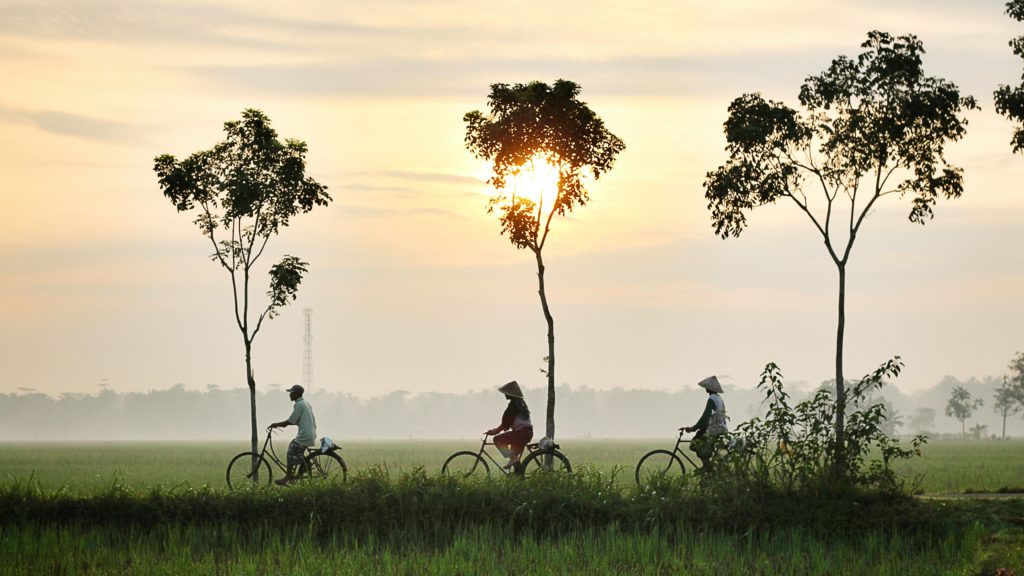
Klohaki Coffee Estate – a new choice for coffee lovers
Although current production is still quite low, Punpun and the local community enterprise are planning to dramatically increase the production within 2-3 years. “I’m planning to have our members move towards specialty coffee. And using our farm and processing technique as the model, I’m continuously teaching them how to make good coffee. I hope our coffee will be a preferred choice for coffee lovers,” Punpun said, and his Klohaki Coffee Estate will not stop developing new products that use variety of processes. The Precious Land “I encourage young people to go out and find valuable experiences in different environments. Take 4-5 years to learn new skills, and you can always come back and use everything you’ve learnt to develop your home if you don’t like what’s out there. Having a bachelor degree doesn’t mean you have to work in an office.
We can use our knowledges in different ways,” Punpun said. He gathered 7 members of community enterprise who decided to return home and started coffee farming after living in a city. “I brought them together and told them that they don’t have to go out to find jobs anymore. Together we will make our coffee business grow and become a role model for the next generation. This is a good start for young farmers. When we were kids we couldn’t see how a mountain can become a gold mine, but now that we are all grown up we can see that every square inch of land can generate income for us. We can live harmoniously with the forest and allow the forest to produce for us while we take care of it in return.”
Living In Harmony
Coffee farming or any farming can be challenging for many people. It certainly is for Punpun, but the happiness he receives from working on his ancestor’s heritage is very rewarding. “Happiness is subjective. For me, I’m happy to be working with nature and coffee, and it’s the happiness that cannot be found in the city.” If you are interested in visiting Punpun’s coffee farm, you are in luck because he recently opened a farm-stay where you will be able to experience the way of life of a coffee farmer, learn how to harvest coffee cherries, and discuss coffee ideas with Punpun.
Kitchayanan Chomsanook
– Namura Coffee Co.,Ltd. –
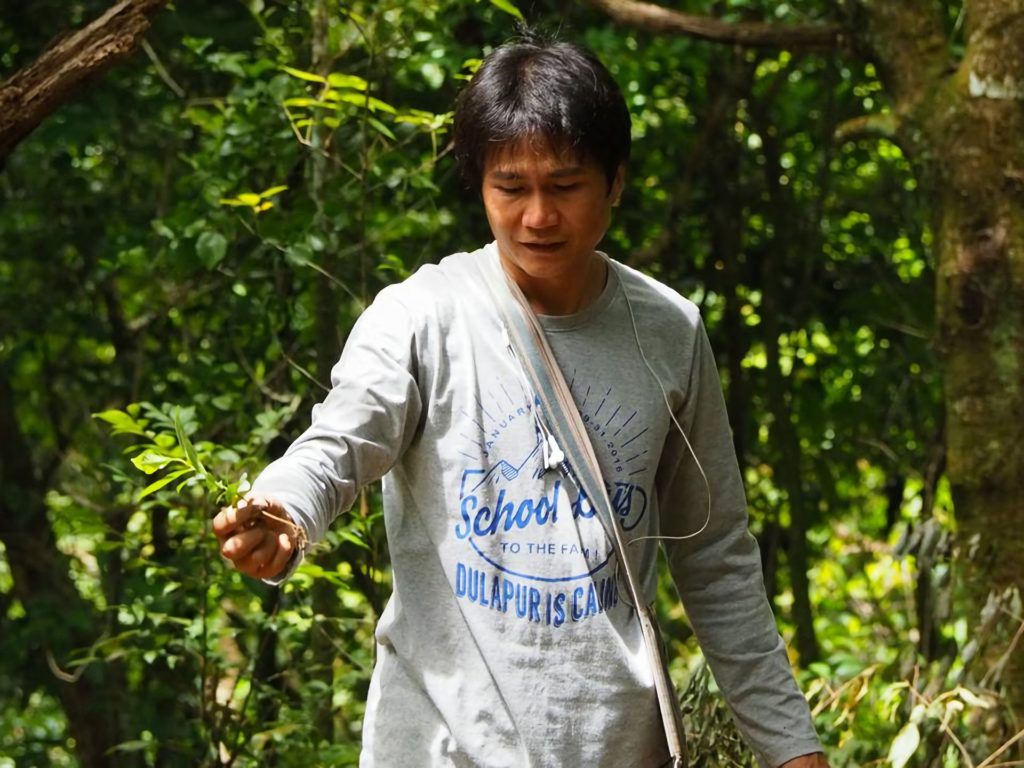
Kitchayanan Chomsanook is the founder of Namura Coffee (Namura is Paka-kyaw for aromatic). Some of you may know him as Dang Dulapur as he first started a coffee farm at Dulapur village in Mae Hong Son. Before he chose the path of a coffee farmer, Dang worked with construction, textile, communication equipment, and even had a white collar job. His last job before coffee was a volunteer organic farming educator, and it led him to finally find what he loves. Dang loves organic farming and he cannot live without coffee. He met Rop Prarop, a veteran in coffee industry and the owner of Inthanon Coffee, who inspired Dang to seriously consider joining the coffee industry with his stories. Rop once told him, “If you want to do coffee, you have to do the hard work to get what you want.” Therefore, 7 years ago when Dang was 35, he visited his close friend’s coffeefarm and decided to work together at Dulapur village.
Developing Quality
Dulapur village used to produce only 100-200 kilogram of coffee per year, but with Dang’s devotion in developing a better coffee farm, coffee received more recognition and he knew he was going in the right direction. “The villagers started to see profitability from coffee farming. The price increases every year and we pay them more every year because we know they have high production cost. More villagers are growing coffee with care, and we process them cautiously. When the coffee is good, people will happily pay for it. Coffee lovers get their quality cup and the farmers get their reward. Everyone is happy this way.” In the last couple of years, other villages learnt about the price Dulapur village received for its coffee. Dang was invited to teach at almost a dozen villages in Mae Hong Son and Tak provinces. He mostly works with Paka-kyaw people and teaches them how to correctly grow coffee. However, if he runs into difficult challenges, he would seek help from fellow members of coffee community and Patchanee Suwanwisolkit, a lecturer and a scientist at Faculty of Agriculture, Chiangmai University.
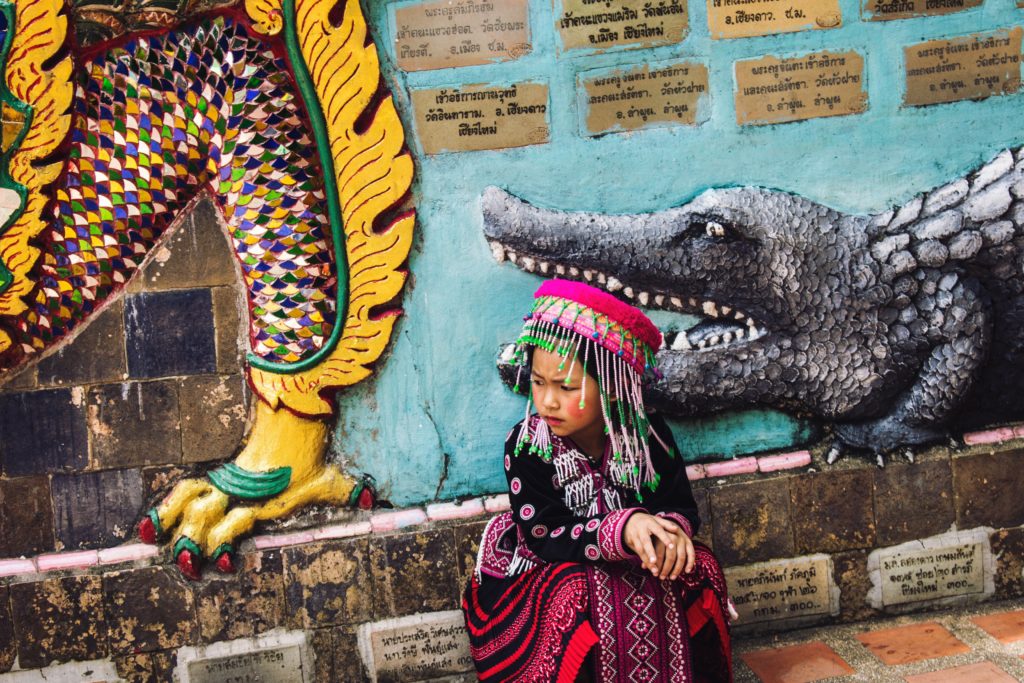
Embracing Challenges
The main challenge for coffee farming in Mae Hong Son is transportation. Each village is hundreds of kilometers apart and teaching new and unfamiliar processes to villagers can be difficult. “However, those willing to learn can be a great help as they can become a model. These models allow people to see the result of correctly caring for the coffee, and others can adopt the new way to their farms. This increases the quality as well as the quantity of Mae Hong Son coffee.” Another challenge is recognition. Mae Hong Son coffee is not well-known and sometimes people don’t even know coffee is grown here. Dang had to travel around and let people sample his coffee. Luckily Rop introduced him to coffee experts in Thailand who gave valuable feedbacks on the coffee, and this allowed the development to leap forward. Now the problem Dang faces every year is inadequate supply. “It’s useless if we have good quality product but has no product to sell. We cannot expand our market, so increasing our production is the main goal this year. To help people recognise Mae Hong Son coffee, we are organizing a coffee festival in Mae Hong Son this August. Visitors will be able to taste coffee produced here and directly contactthe farmer.”
Bringing Young Generation Home
Besides quality coffee, Dang’s side mission is to bring young people back home. Farmers will call their children back home during harvesting season and usually the children will make more money than their city job.Paka-kyaw communities are aging communities because most of the young people has left the villages to work in the city. “We believe we should bring our young ones back home and coffee is a good tool for the mission. Coffee is perfect for our way of life; It is suitable for the terrain we have and we can conserve the forest at the same time.” Princess Sirindhorn’s initiative ‘Forest Farming’ projects also open the door for villagers to benefit from the land without damaging the forest. This goes hand in hand with Dang’s way of farming – never cut down big trees because coffee trees will need the shade. “If you take care of your coffee well, we will give higher price for higher quality. It won’t be the minimum price.
We try to give the highest price we could because we want the famers to have a good life. If we try to go for the minimum, no one will want to farm coffee and we will never be able to increase production. It’s important to support villagers to produce quality coffee.” Now everyone come to share their experiences in order to improve the quality of Mae Hong Son coffee. More and more young people are returning. Rice is still the main part of Paka-kyaw people, and they alternate between rice and coffee seasons. When they are done harvesting rice, they will work on coffee, and vice versa. That’s why coffee fits in perfectly with their way of life. Dang’s missions to produce quality coffee and bring young people home are moving forward efficiently alongside one another, and we will surely be able to experience quality coffee from the young farmers of Mae Hong Son in the near future.
Chartree Sae-Yang
– Khun Chang Kien Coffee –

Chartree Sae-Yang is a young Hmong coffee farmer in Khun Chang Kien. He was jumping from job to job in Chiangmai city for 8 years since he was 18. At a point, he realized that he wouldn’t be able to succeed if he continued to follow others, and he should return home to seek other opportunities. There were many things waiting for him at home, and he believed coffee was the most valuable asset there. Khun Chang Kien is the first coffee origin in Thailand to have a coffee research center, and it reflects in the variety of coffee cultivar grown there. “We need to find that pivot point in your life. Around 5 years ago when I was 26, I decided to go home and become a coffee farmer, and in 2017 Khun Chang Kien coffee was awarded third place from Specialty Coffee Association of Thailand (SCATH) and recently our washed process coffee received 5th place at the same competition. It shows we are on the right path.” Chartree mainly uses fully washed process because he said, “fully washed process is more simple and easier to pass the knowledge unlike dry and honey processes which require much more.”
Starting From Scratch
When he first decided to jump into coffee at home he didn’t have any knowledge at all. His first brew was a drip coffee which he felt it was easy to drink, but he had no idea what espresso, cappuccino, and latte were and how to brew them. He then stepped up to a small espresso machine and learnt brewing steps from online videos. He had coffee, but he didn’t know how to properly use it, so he took a step back to look and realized that he wouldn’t get anywhere from what he was doing because he didn’t understand the foundation. That’s when he decided to start over from scratch. The first time Chartree heard the word ‘specialty coffee’ he didn’t know what it was or how it’s done. However, he knew he cannot compete with others, in term of quantity, with the amount of land he had, so specialty coffee was the answer. Labour is an important part for coffee farming in the mountain as the terrain is impossible for machine harvesting. Furthermore, specialty coffee requires attention in every aspect from plot management and processing, to brewing and drinking. As he got more familiar with coffee, he attended coffee courses and frequently met different baristas in Chiangmai who were eager to share their experiences.
He quickly understood coffee and realized that coffee farmers need to understand what makes a good cup of coffee. “Ms. Tien (Wimonlack Blom-Boonvises) , formerfacilitator at OneCert Organic Certification, advised us to enter our coffee into a SCATH competition to get feedback on how to improve the coffee further.” The competition allowed people to learn about coffee from Khun Chang Kien, and it showed us the flaws in our coffee. SCATH invited the top 10 farmers to give feedbacks on the coffee, as well as training. “SCATH informed each farmer about the downside of their coffee. We are coffee grower and our coffee are stepping up to another level, but to be a great producer we need to fully understand our coffee thoroughly. They also teach us how to cup and separate good characters from bad ones, as well as pruning technique.” With the knowledges gained, the first change they saw was coffee picking. They now carefully pick only ripe cherries instead of pulling every cherry, in different ripeness level, on a branch off. The development spread out towards surrounding coffee farms and we can see a continuous improvement. Buyers are also happy to pay higher price because the percentage of ripe coffee is much better than before.
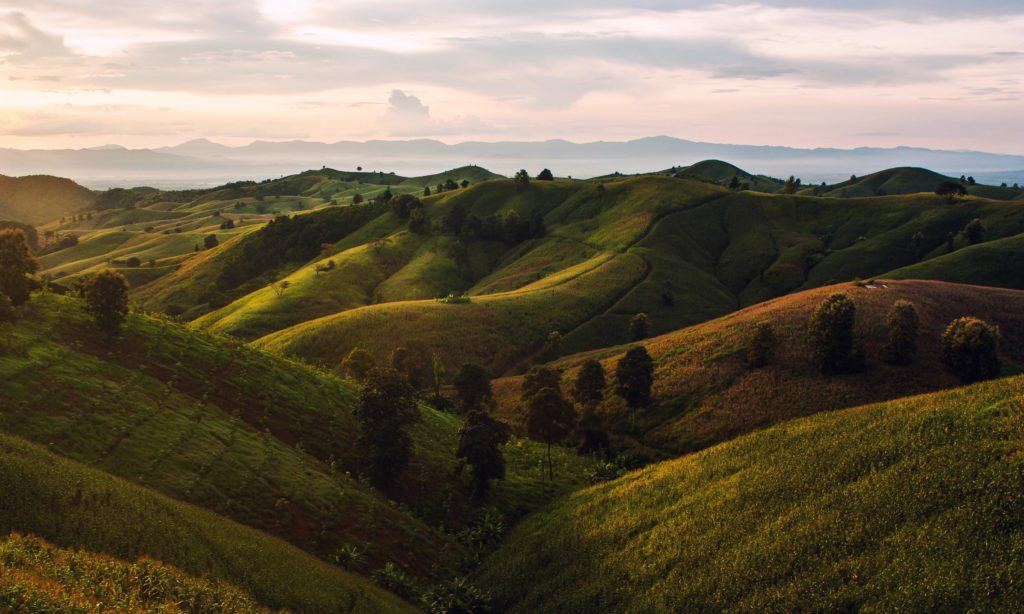
Making An Example
Chartree’s success in using modern knowledge to develop his coffee and improve the recognition of Khun Chang Kien coffee inspires people in their 30s, the same age as Chartree, to consider a career in coffee in their hometown. “Many started to think that why have they overlooked this valuable asset they have at home. More and more people are returning home, but they still lack understandings of coffee.” People used to grow coffee the way their ancestors did without any development, and they could not get enough cherry to sustain their living. That’s why they turn to other jobs or replace coffee trees with other cash crops. Young people in their teenage would travel to big cities to continue their education with the hope to become a civil servant or office employee with high salary. “If you just blindly follow the trend, you’ll always be behind other people. On the other hand, it’s better to come together, share our knowledge, and help one another in developing coffee at our home. We can proudly say ‘this is our coffee from Khun Chang Kien where the first coffee research center was found’.” From the believe that they have to leave their hometown for a better future, they now see opportunities to have a sustainable career at home.
More Than Coffee
Chartree is currently shifting his farm towards organic farming, and he’s now choosing the cultivar that suit the terroir. If you go to Khun Chang Kien, you’ll see different coffee varieties grown everywhere. This is a problem that needs to be addressed carefully. Coffee processing also needs to be develop continuously. If you want to be a part of the coffee farming community, Chartree said, “Coffee bean isn’t the only reward you’ll get from coffee farming. Other trees that give shade can provide income as well such as cocoa, lychee, avocado, and persimmon. These fruits can provide income all year round, and it’s important for every farmers to build a sustainable ecology with the forest.”









NO COMMENT